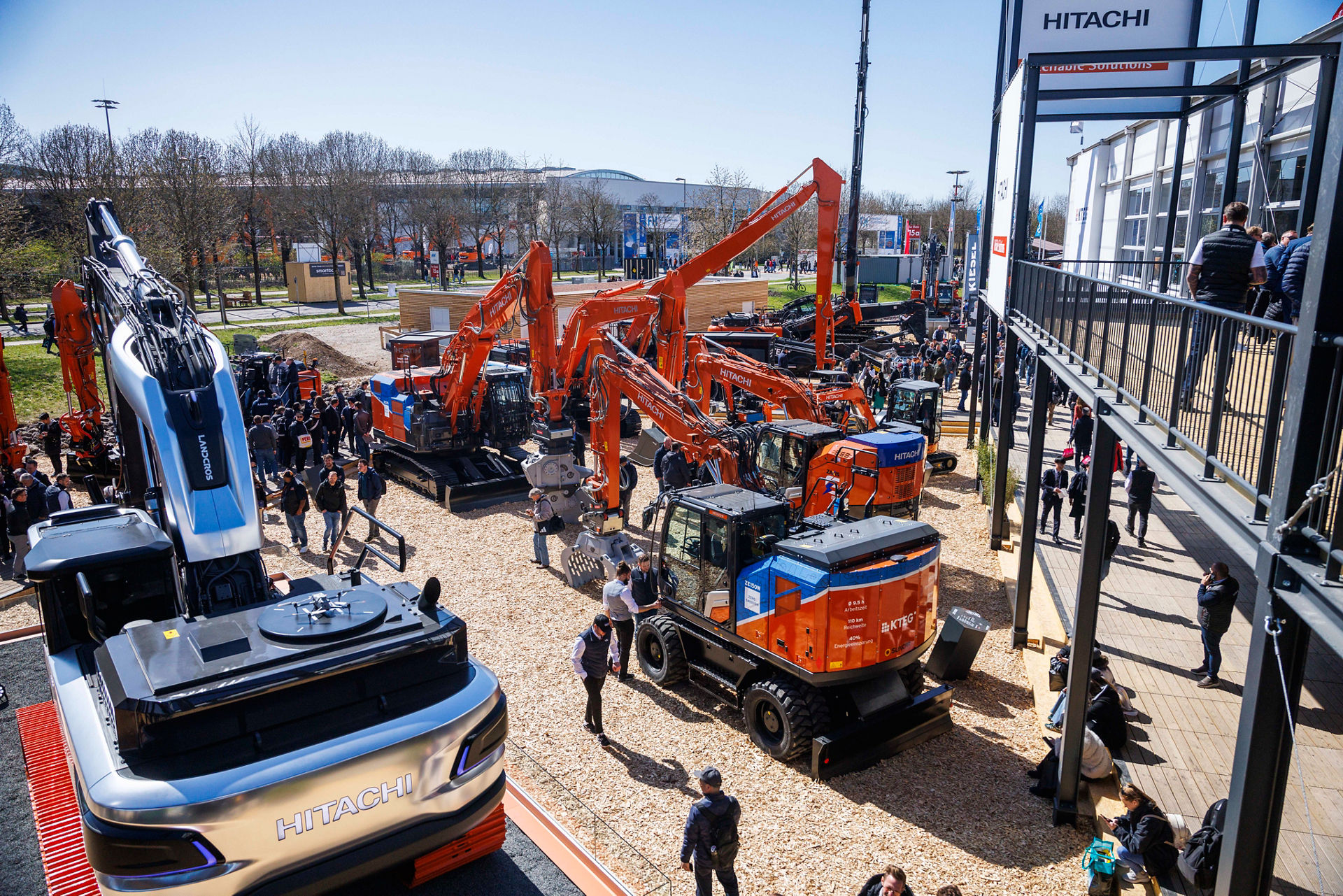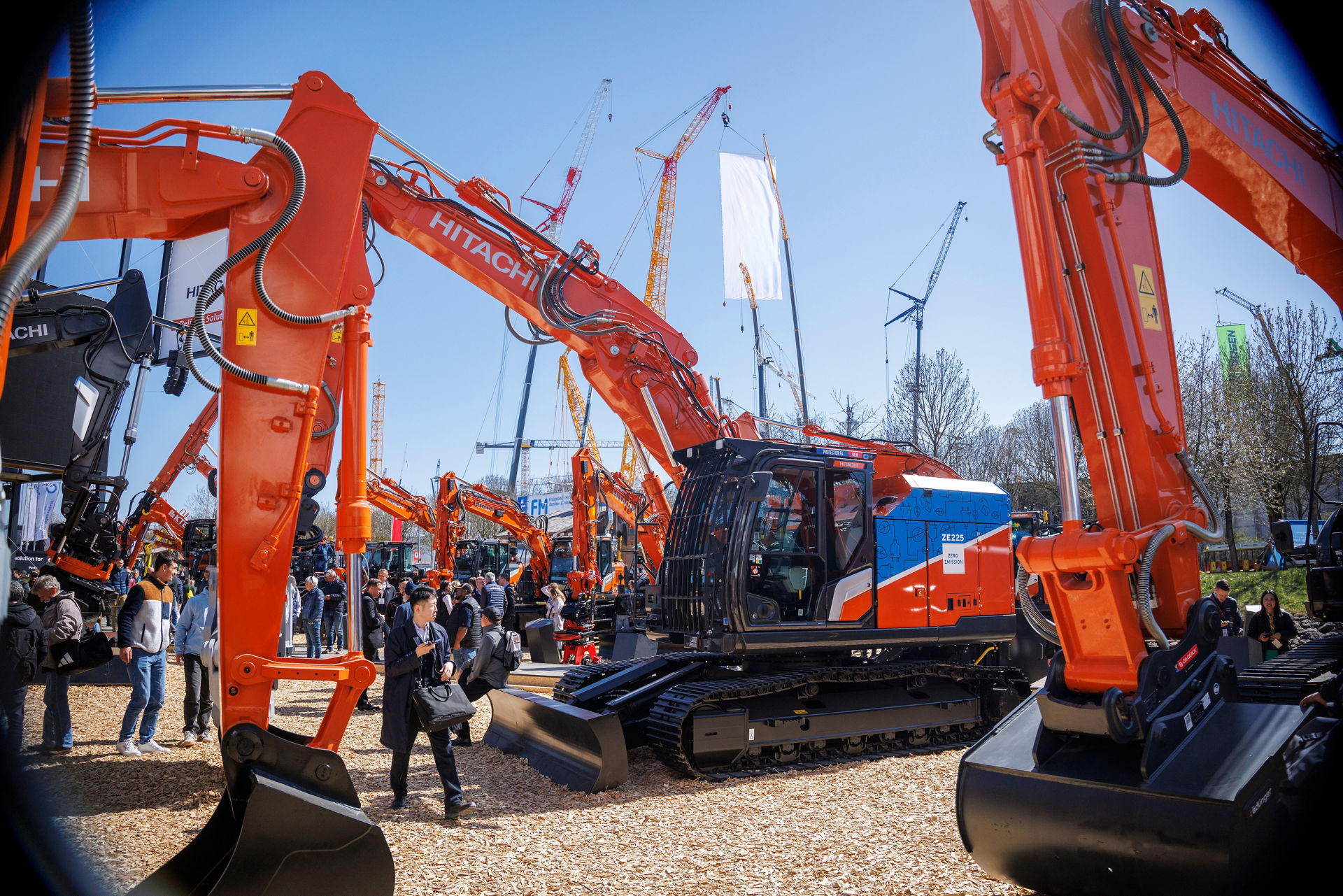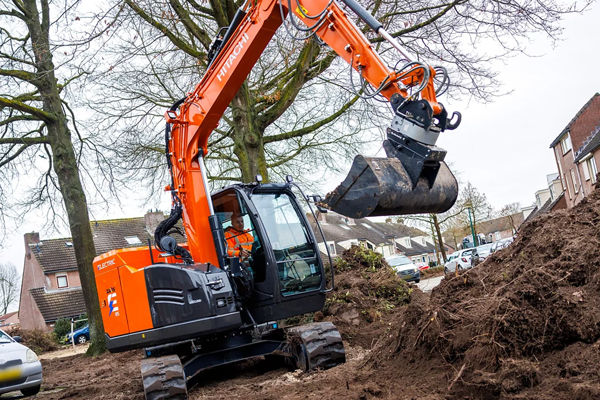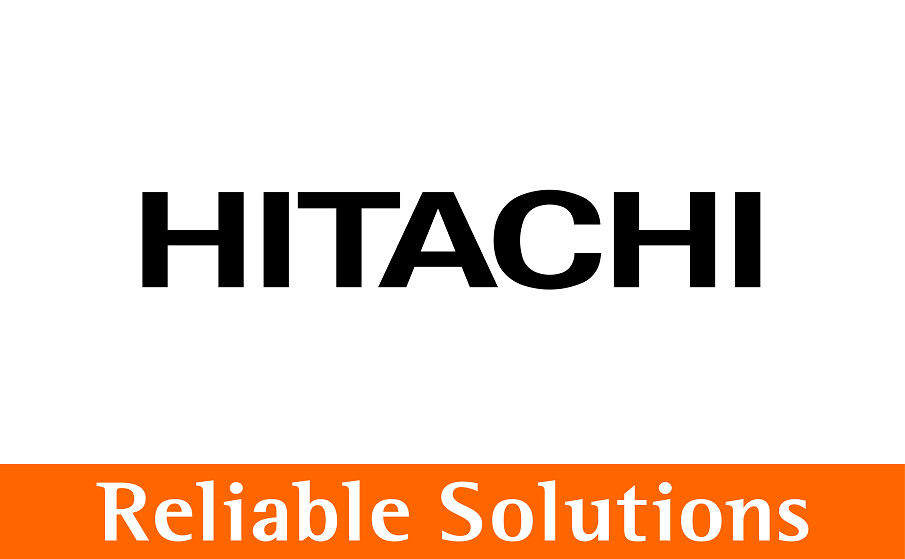Electric and hydrogen-powered excavators are supporting the construction industry’s zero-emission ambitions. Here, we look at how Hitachi Construction Machinery is exploring the use of alternative fuel sources for its compact and medium models, and the potential benefits of such equipment to fleet owners.

Switching on to the power of electric
Electric excavators use a mixture of battery-powered and cable operation. A key benefit is their low noise levels compared to diesel models, which makes them ideal for use in urban areas. There are also fewer maintenance requirements and less downtime than their diesel counterparts. This is because electric batteries have fewer consumable parts that need regular replacement.
Hitachi Construction Machinery is focussed on the power of electric and is proud to offer three electric-powered models to the market:
- The five-tonne ZX55U-6EB is the first Hitachi-branded model in this class.
- The eight-tonne ZX85-6EB, currently the best-selling model in the Hitachi electric range.
- The 14-tonne ZX135-7EB, which maintains the same performance levels as the diesel-powered ZX135US-7.
At Bauma 2025, Hitachi Construction Machinery presented a concept mini excavator with swappable lithium-ion battery system. Developed in partnership with Dimaag AI, it is designed to enable quick battery changes to maximise uptime and reduce operational delays.
Hitachi Construction Machinery has also collaborated with Kiesel Technology Entwicklung GmbH in Germany to explore the use of alternative fuels. As part of the joint venture, the Kenki Technology Group (KTEG) has developed four electric excavator models:
- The ZE150W electric wheeled excavator, which offers exceptional mobility and efficiency.
- The ZE225 electric medium excavator equipped with a modular battery system and optional cable operation for continuous availability.
- The highly versatile ZE17 cable-powered mini excavator.
- The powerful ZE85-6EB electric compact excavator.



Where does hydrogen fit?
As demand for clean-fuelled construction machinery continues to grow, hydrogen is also emerging as a possible power source for excavators.
The groundbreaking 30-tonne concept ZE300 medium excavator is KTEG’s first excavator with a hydrogen combustion engine. It has been designed for heavy-duty work in environmentally sensitive areas, helping to contribute to a low-carbon society. Its hydrogen engine is supplied by Deutz, and as the hydrogen storage is integrated into the rear, there is easy access to the engine compartment for maintenance and rapid refilling.
What does the future hold?
Alternatively fuelled excavators are an increasingly appealing option for construction business owners, and not just because of their environmental benefits. Reduced running costs, low noise and minimal downtime are certainly key advantages for using alternative solutions to diesel-powered equipment too. Renting electric machines also gives contractors the chance to experience these advantages before they commit to purchasing.
Although demand for combustion diesel-powered engines will continue in the short term, due to businesses operating in locations where there is often no infrastructure and limited power sources, research into other power sources such as electric and hydrogen shows no sign of slowing down.
For more information about Hitachi excavators, please contact your local dealer.
Why stop reading now? Others liked:

Subscribe
Keep up to date with the latest news from Hitachi Construction Machinery (Europe) NV (HCME).



